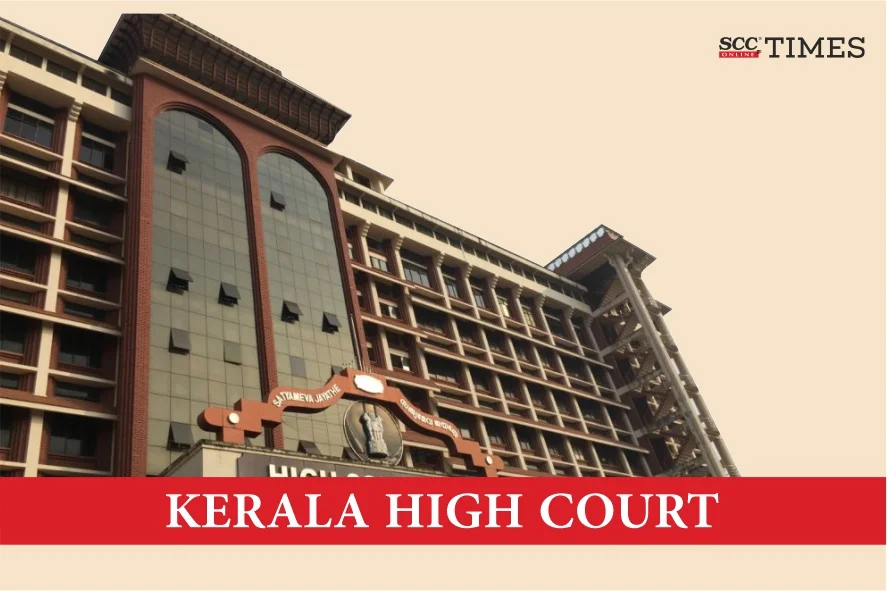Kerala High Court: In a petition filed by the accused under Section 482 of the Code of Criminal Procedure, 1973 (‘CrPC’)1 for the quashing of proceedings, wherein the accused had been alleged to have committed the offence of rape. However, he eventually married the victim, and they lived together as husband and wife with children of their own. A. Badharudeen, J., allowed the petition and quashed all proceedings against the accused and observed that although the settlement of cases stemming from the offences of rape and Protection of Children from Sexual Offences Act, 2012 (‘POCSO Act’) was not permissible under law, an exception was made considering that the accused and the victim had children together and were living a peaceful family life. The Court remarked that there was no necessity to continue criminal proceedings to retain them in the hazards of litigation and to collapse their married life and the wellbeing of the children.
Background
On 21-02-2021, accused 1 kidnapped the victim, who was aged about 17 years, from the lawful custody of her guardians and subjected her to sexual intercourse after illegally detaining her. As a result of the sexual assault, the victim became pregnant. It was further averred by the State that the mother of the victim, accused 2 herein, failed to inform the incident to the police. Based on this, the State alleged that offences punishable under Sections 3662, 34233, 3704, 370-A5, 376(2)(n)6 of Penal Code, 1860 (‘IPC’) and Sections 5(l)(j)(ii) read with Sections 6, 4 read with 3(a) of the POCSO Act, were committed by accused 1 and offence punishable under Section 21(1) of the POCSO Act was committed by the victim’s mother.
It was submitted by the accused that the matter had been settled and the victim had also filed an affidavit supporting such settlement. It was submitted that accused 1 and the victim got married on 25-08-2021 and were happily living as husband and wife, and prayed that in view of such settlement, the case was liable to be quashed. The settlement was also supported by the victim before the Court.
The State contended that accused 1 and the victim also had two children and were all living happily.
Decision and Analysis
The Court stated that power vested with the Court under Section 482 of CrPC to quash criminal proceedings in respect of serious offences like murder, rape, dacoity, etc., settlement between an offender and the victim would be bereft of any legal sanction.
The Court remarked, “when a human frame is defiled, the “purest treasure”, is lost. Dignity of a woman is a part of her non-perishable and immortal self, and no one should ever think of painting it in clay. There cannot be a compromise or settlement as it would be against her honour, which matters the most.”
The Court said that although the High Court could invoke its jurisdiction under Section 482 of the CrPC to quash the proceedings on basis of the settlement reached between the parties even for non-compoundable offences, such jurisdiction must be invoked upon consideration of the fact that whether the proceedings related to any serious and heinous offences, and whether the crime in question had any impact over the society.
The Court noted that in the instant case accused 1 and victim were married and had children, and it was of utmost importance to ensure the well-being of children, even though settlement of cases stemming from offence of rape and POCSO Act was not permissible under law.
The Court, therefore, allowed the petition and quashed the proceedings against accused 1 and 2.
[X v. State of Kerala, 2024 SCC OnLine Ker 4051, decided on 22-07-2024]
Advocates who appeared in this case :
Advocates for accused: P.L. Mary Treasa, Advocate
Advocate for State: M P Prasanth, Public Prosecutor
Buy Code of Criminal Procedure, 1973 HERE
Buy Protection of Children from Sexual Offences Act, 2012 HERE
Buy Penal Code, 1860 HERE
1. Section 528 of Bharatiya Nagrik Suraksha Sanhita, 2023 (‘BNSS’)
2. Section 87 of Bharatiya Nyaya Sanhita, 2023 (‘BNS’)






